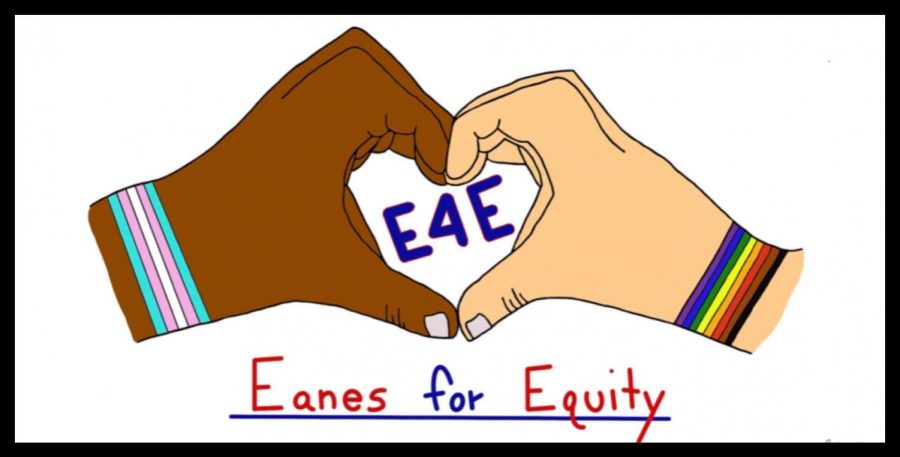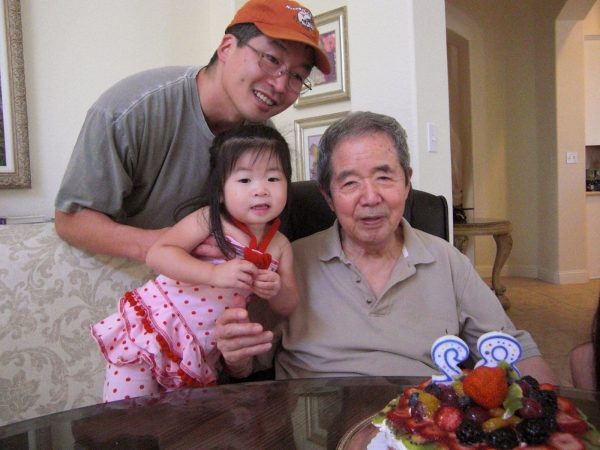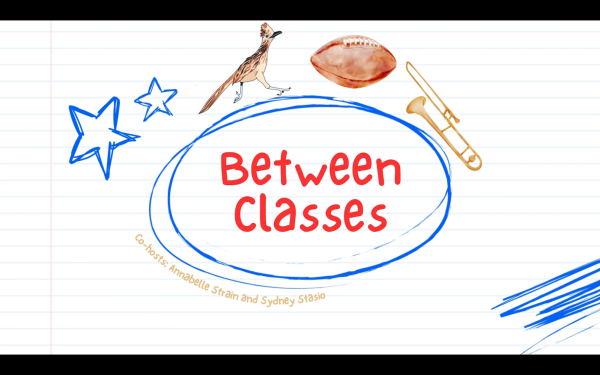Staff Editorial: We strive to be equitable, but how do we really accomplish this goal?
As of the 2018-19 school year (2019-20 could not be assessed due to COVID-19), roughly 69% of Westlake students were white. Roughly 13% were Asian, another 13% were Hispanic, 0.9% were Black, 0.2% were Native American and 0.1% were Pacific Islander. This data shows the shocking lack of diversity in our district, and many don’t recognize the detrimental impact of this standard on education.
Recently, the parent-led anti-racist organization Eanes for Equity (@eanes4equity) reached out to us asking if we had written anything related to equity in Eanes ISD, and specifically what parents can do to help their children learn about this matter. This request inspired us to reflect on events we’ve experienced, witnessed or heard about in Eanes and write a piece that we hope will help promote awareness throughout our community.
The three of us writing this column fall into Westlake’s minority population. We cannot speak for every minority in Eanes, but we can speak from our own experiences. We’ve seen that a lack of diversity can lead to ignorant or prejudiced remarks, ranging from seemingly harmless comments to highly discriminatory actions. As current Westlake students — who’ve been in Eanes since at least middle school — we’ve been exposed to an environment that can be supportive at best and traumatizing at worst. This isn’t just a problem in Eanes; it stems from systemic institutions that exist everywhere in this country, but we hope to bring awareness in our own community to make a small yet crucial change.
Even though we’ve moved past the time of Jim Crow and Japanese internment, racism and imperialism are still embedded in the foundation of our country. Our country’s economy was built on slavery, and we have become a world power by exploiting other countries (Latin America, Hawaii, the Philippines). Because these things are foundational, simply writing a law is not enough to get rid of them. Obviously, overt incidents of racism are widely (but not fully) unaccepted in our society. Instead, racism has wormed its way into many cracks and crevices in our country’s establishments. This leads to a subtle form of discrimination that is harder to notice but just as harmful. This is what we have to fight. We need to combat the underground presence of racism that subtly contributes to a detrimental learning environment for children in Westlake.
So, what do we need to do?
On July 21, the Eanes Board of Trustees voted to hire Dr. Mark Gooden as Diversity, Equity and Inclusion Consultant for the 2020-21 school year. This was the first step in the right direction, and we are happy to see the district’s efforts to take action towards a more equitable school district. But we know there is much more work to be done. It is vital to promote diversity and equity training for teachers and staff, a process which will be facilitated with Dr. Gooden’s help. Many of the stories shared by current and former Eanes students reflected teachers’ unawareness and inability to deal with these matters. These things don’t come from a place of bad intention but from a lack of exposure, and they can be remedied with proper training.
Moreover, a genuine representation and portrayal of role models with different identities is imperative to developing an appreciation for diversity in our youth. Especially for the younger students in Eanes — namely, elementary school students — fostering an awareness of racial and cultural differences is essential because this will help them be more inclusive to others in the future. This includes diversifying the curriculum. Based on our experiences, we have noticed that content we’ve learned in history and science classes lack representation of powerful historical figures of color. For example, for most of us, we didn’t learn about our country’s history of imperialism until sophomore year World History. We were taught that Native Americans were savages that Columbus bravely vanquished to “discover” North America. We were taught that the American Revolution brought freedom to all Americans when in reality, Native Americans, women and enslaved Africans were left behind. We were taught that the Civil War was fought on states’ rights, not slavery. For much of our country’s history, the phrase “All men are created equal” only extended to white men, which is something we never really understood.
The implementation of a new curriculum will not be effective without the destigmatization of topics surrounding race and racism. We should introduce these topics to children at an early age so that they can comfortably and appropriately discuss them. Without exposure to these issues, the stigma will continue to grow. Discussions of race must become spaces where we feel comfortable to share our experiences and learn from others. Introducing these topics at an early age will promote a readiness to participate in civil discourse. Oftentimes, people feel uncomfortable talking about this topic, either because they can’t relate or because they fear ostracism for accidentally saying the wrong thing. This can lead to the repression of these sorts of discussions. While it may seem easier to shy away from topics we are uncomfortable with, this can come back to haunt us in the future by making us unprepared for these conversations when they arise. Without the acknowledgment of race, there is no room for change.
So, what can you do?
As primary figures for children in a predominantly white community, you should ensure that they are prepared for discussions surrounding topics like race and equity. In other words, it is your responsibility to responsibly educate yourself so that you can do the same for your children. First of all, you shouldn’t rely on minorities to teach you about this issue; you need to do some research for yourself. Use online media to teach yourself — read books and articles, listen to podcasts. You can Google https://blacklivesmatters.carrd.co/ to get started. However, don’t be afraid to ask questions. Before asking a question, make sure it’s appropriate. An appropriate question is one that seeks knowledge rather than disrespects or invalidates. For example, you can ask things like, “Why is Diwali important for Hindus?” or “Why do you practice Ramadan?” But you should NEVER say things like, “Where are you really from?” or “What is your side job?” or “You’re so exotic!”
Next, it is important to educate your children in a way that doesn’t reinforce or perpetuate harmful stereotypes. This means exposing them to different media and role models beyond the white canon. Here are some movies that we believe portray role models of multiple identities: “Hidden Figures,” “Coco,” “Black Panther” and “Moana.” We highly recommend these films to anyone despite their race, and we encourage you to show these to your children so that they can have role models of all backgrounds. Don’t stop here; there is a never-ending number of books, movies or podcasts that accurately display diversity. For us, some of the most impactful movies about racial justice are “The Hate U Give,” “Just Mercy,” “Cesar Chavez” and “Remember the Titans.” Some of these are not appropriate and can be disturbing for young children, so we encourage you to do your own research about these movies on sites like Common Sense Media (https://www.commonsensemedia.org/). Providing children with representation of different races is crucial towards helping them learn that reality is more than the white norm depicted in most media. It’s the first step towards helping them be more inclusive and open to diversity.
Exposing your children to different cultures goes beyond media. We need to teach children to respect others’ cultural differences so that they won’t behave in a way that could potentially invalidate someone’s identity. For example, different cultures have different ways of eating, dressing, celebrating holidays or addressing relatives, as well as different cultural norms. If you don’t teach your children this, they won’t react in an appropriate manner to someone doing something they don’t recognize. Their curiosity and confusion could come off as disrespectful and hurtful, and they might end up unintentionally kick-starting another person’s insecurities about their cultural identity. Most importantly, we need to discuss other cultures in a way that doesn’t disrespect or trivialize. Make sure to foster an appreciation for the uniqueness and depth of every culture.
Oftentimes, we attribute certain traits to certain races. Sometimes, we make assumptions about other people solely based on their race, and this can cloud our opinions of other people. It is difficult for most people to understand the damaging impact of these stereotypes, but they create expectations that minorities feel they have to uphold. Defying these odds is a constant battle; we want to be identified as ourselves and not our race, but at the same time, we feel the need to conform to be accepted by society. As parents, you need to teach your children that stereotypes of any sort can be toxic — even if they don’t seem like they are. You also need to make sure you don’t exemplify these stereotypes, meaning you don’t enforce them yourself. If you behave in a way that is disrespectful to someone’s race, then your children will learn to do the same.
Discrimination happens. We live in a world where everyone will experience prejudice for one reason or another. This is unavoidable, but that doesn’t mean we can’t do anything about it. Every meaningful conversation about this issue results in a small change somewhere. The hardest part can be initiating the discussion, but it is essential that we do. We must bring attention to these situations rather than covering them up, and as parents you should remind your children to do so. It may seem easier to brush this issue aside, but that won’t help you or your child.
Children make mistakes. Children can unintentionally be racist because they don’t know how to convey their message. If this happens, you need to make sure that they know what they did was wrong. But instead of ostracizing them for their prejudice, you need to turn this into a learning moment. Explain why it was wrong even if it’s awkward, and teach them how to avoid repeating this mistake in the future. Even better, encourage them to call out others when they see them doing the same. But most importantly, teach them to own up to their mistakes and apologize. The three of us writing have all said or done something we wish we could take back, but we can’t. Instead, we used these experiences to learn how to be more respectful and empathetic to others, and we urge you to do the same.
The message we want to leave you with is this: your influence can and will make a difference in your child’s life. By taking these steps to be more racially aware, you are helping yourself and your children strive for a more equitable future. In this way, even the smallest things we do can have a significant impact. Yes, this won’t solve the systemic racism that plagues our country, but it can cause a meaningful ripple effect that will resonate within our community and onward.












Safina • Oct 24, 2020 at 3:21 am
This editorial was definitely needed, and I agree with it 100%. As a South Asian Muslim American, with 3 young boys it is very important for them to be in a school district that promotes and teaches tolerance and diversity. As parents we need to do our part to and to be open minded, and to learn about others faiths and practices, and be role models to our children, so that they can promote tolerance when they are adults.